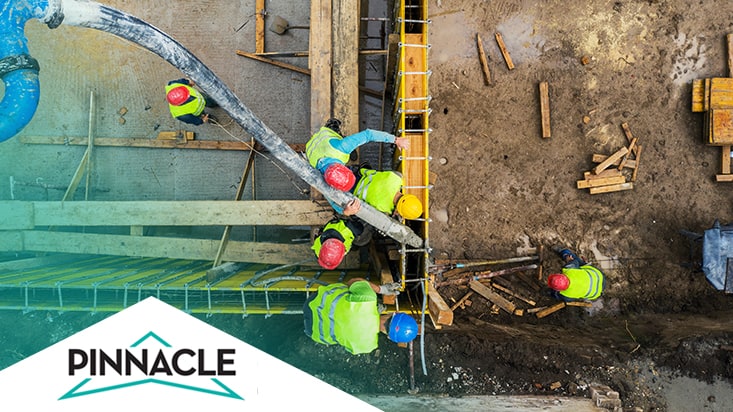Contractors’ performance is secured by surety bonds, which guarantees that they will fulfill the terms of the contract. Bid bonds, performance bonds and payment bonds are all types of construction surety bonds for contractors. The contractual obligations between parties in the construction industry are secured by a construction surety bond, a credit instrument that binds their duties. These contract bonds can be divided into even more categories, as they have several types of bonds.
Call: (844) 612-7238 to get started
Performance and construction bonds guarantee that all the expenses or costs associated with a construction project will be covered. On the other hand, performance bonds guarantee that the contractors will perform the job as stated in the bond agreement. This bond can safeguard investors and project owners from unfinished work or unpaid expenses. If you cannot complete the job, the surety company might be forced to pay a default judgment and manage the project’s completion.
A performance bond premium can be as low as 1% of the total coverage amount, depending on the principal’s financial situation, available collateral, and the scope of the work.
Performance Bond
Contractors agree to a bid and begin working on a project by posting a performance bond. Performance bonds protect the owner from financial losses if the contractor’s work is subpar or defective in quality or fails to follow the terms and conditions of the agreement. It is the process by which a bid bond is transformed into a performance bond.
Bid Bond
 A bid bond is required of a contractor by a project owner as a guarantee that the bidder will enter into the contract if awarded the job. The bid bond stipulates that the contractor will acquire performance and subcontractor payment bonds in support of the contract to ensure it’s satisfactory completion. Each competing contractor must submit their bid and request to safeguard the owner if they drop out. The bid bond process filters out unqualified bidders to ensure a competitive bidding process. The performance bond, which must be completed before working on a job, is generated from the bid bond.
A bid bond is required of a contractor by a project owner as a guarantee that the bidder will enter into the contract if awarded the job. The bid bond stipulates that the contractor will acquire performance and subcontractor payment bonds in support of the contract to ensure it’s satisfactory completion. Each competing contractor must submit their bid and request to safeguard the owner if they drop out. The bid bond process filters out unqualified bidders to ensure a competitive bidding process. The performance bond, which must be completed before working on a job, is generated from the bid bond.
Payment Bond
A subcontractor payment bond ensures that the contract winner has sufficient financial resources to pay their workers, suppliers, and subcontractors. The owner profits from this payment bond, which replaces mechanic’s liens as remedies for nonpayment because it provides a replacement.
How To Obtain a Construction Surety Bond for Projects
Before issuing a surety bond, your creditworthiness is the critical determinant. Surety bond agents must consider several factors before purchasing a surety bond, although there are several fundamental factors to consider. Before retaining a surety bond, various documents must be shown, including corporate or strategic 1-5 year plans, organizational charts, and contractor/employee resumes. Additionally, keeping a construction bond will significantly depend on the presence of a corporate or strategic 1-5 year plan that details current and future company objectives, goals, and objectives. Furthermore, you must have detailed financial information dating back at least three years, such as financial statements, accountant documentation, or financial data. Lastly, credit relationships and references must be shown. While contractual conditions vary from business to business, just a few standards are required to purchase a construction surety bond.
Construction Completion Bond
To increase your probability of receiving approval, construction completion bonds are not really a type of performance guarantee, but they can be included in your project. This bond is usually required when a job must be finished in a limited amount of time, such as with a fast-tracking initiative. Filing for a completion bond is much less time-consuming than requesting a completion bond. All you have to do is complete the form and pay the fee to get started.
Publicly Funded Projects
 The U.S. Government has used surety bonds on public works projects since the late 1890s to safeguard against contractor default or theft of funds. Surety bonds are mandated on federal public works projects to guarantee that the government is adequately compensated if the contractor fails to finish the job. A bond reduces the possibility of default and increases the probability of success, and a surety bond guarantees that the owner is confident that the risk of construction has been adequately transferred to the surety company. In addition, for public-financed jobs, surety bonds safeguard subcontractors and contract completers from loss.
The U.S. Government has used surety bonds on public works projects since the late 1890s to safeguard against contractor default or theft of funds. Surety bonds are mandated on federal public works projects to guarantee that the government is adequately compensated if the contractor fails to finish the job. A bond reduces the possibility of default and increases the probability of success, and a surety bond guarantees that the owner is confident that the risk of construction has been adequately transferred to the surety company. In addition, for public-financed jobs, surety bonds safeguard subcontractors and contract completers from loss.
Privately Funded Projects
Surety bonds are beginning to be required on more privately funded projects. Lenders are becoming increasingly reluctant to finance projects that don’t require surety bonds, and one reason for this is that more and more publicly funded projects are requiring these bonds. In addition, increasingly, more private project owners are seeking to benefit from the same safeguards provided to the public owners of their projects that have historically protected the interests of stakeholders, investors, lenders, and principals. Because surety bonds provide contractor support and help guarantee project completion on privately funded jobs, they are an efficient bridge from construction financing to long-term financing.
Development Indemnity Coverage Insurance
An insurance policy that pays for any problems that occur with a property due to faulty construction is known as development indemnity insurance. A contractor or developer, for instance, may sign an agreement with a property owner to assume responsibility for any issues that arise. If the building is condemned as a result of bad construction, for example, the insurance will compensate the owner.


